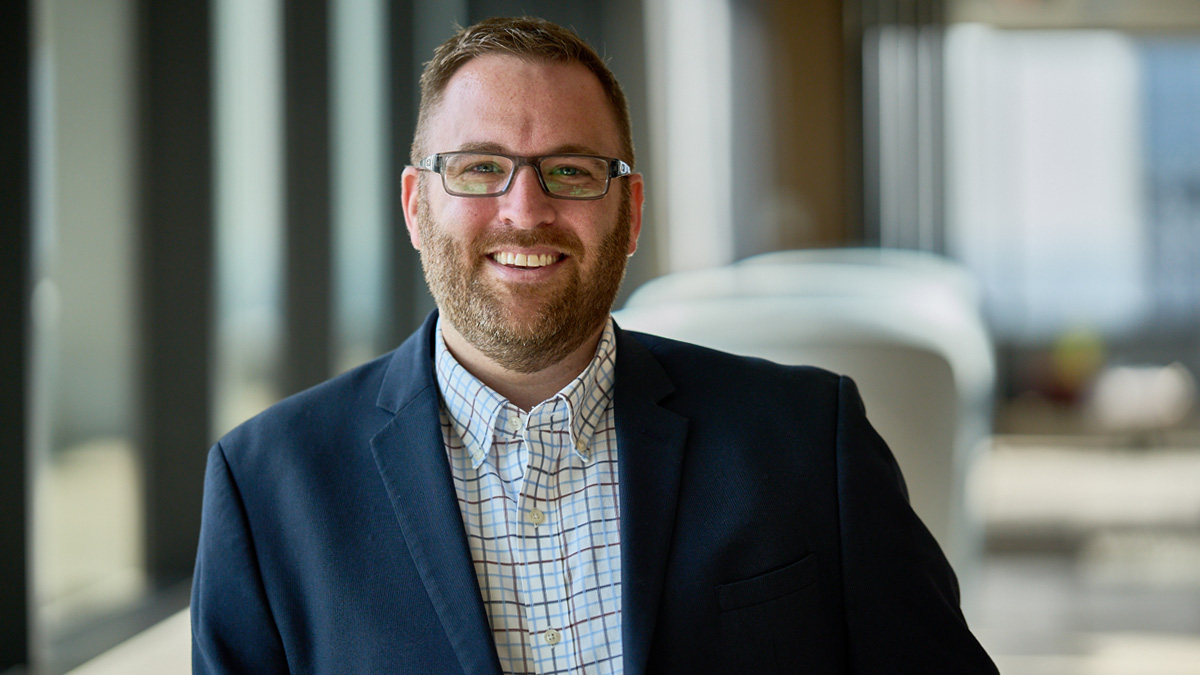Stories
Helping wealth and family business transfers proceed drama-free

Thomas Thiegs, senior legacy and leadership consultant, helps Ascent client families work on some of their most important life goals
From King Lear to this season’s buzziest streaming shows, literature and pop culture are rife with tales of how the transfer of family-owned companies to the next generation can go horribly awry. Tom Thiegs’ job is to help his clients avoid all of that drama.
“We’ve heard lots of examples about how it can fail,” said Thiegs, family wealth coach and senior legacy and leadership consultant at Ascent Private Capital Management of U.S. Bank. “I work with families to avert those pitfalls so they can succeed on some of their most important goals, like preparing their children for the future and educating them on the complexities that come with shared financial resources.”
Thiegs had no idea a job like a legacy and leadership consultant existed when he started his education to become a psychologist. He soon realized he liked teaching and leadership development more than the more traditional career path of therapy. Thiegs eventually earned a doctorate in organizational leadership, with a dissertation focused on family succession – which provided research he continues to use in his job today.
Thiegs also happened to start his job at the onset of one of the greatest wealth transfers in history. Baby boomers control more than half of the nation’s $140 trillion in wealth, according to the Federal Reserve. Of the nation’s 73 million baby boomers, the youngest turn 60 this year and the oldest are nearing 80.
Clients typically engage Thiegs' services for one of three reasons: they have a family business and want to begin working on a plan to pass it along to the next generation, a recent unexpected event like a death in the family created a specific need, or they’re in a time of transition, such as the recent sale of a property or business or the transfer of assets across generations.
He’s also an expert in the dynamics of shared decision making, which as anyone who has tried to get a group of people to agree on something as simple as what restaurant to go to knows can quickly become a quagmire, he said.
“Many of the families I work with have something shared, like a vacation home or cabin,” Thiegs said. “There are some best practices that make this process easier – often as simple as a shared calendar to ensure everyone’s on the same page regarding who is using the cabin on what dates – so my role is often helping them follow those practices to make good group decisions while maintaining family relationships.”
A prevailing theme Thiegs has seen after years of working with families is “the vast majority of people have a desire for a positive impact on the people and the world around them. They want that impact to be part of their legacy,” he said. “My job is about identifying any unintended consequences of their decisions or bringing in multiple family member perspectives to make sure it’s not just one person’s intentions being addressed.”
One of Thiegs’ favorite parts of his job is helping families navigate business succession, which can be sticky on many levels, not the least of which is when an entrepreneur who started the business with decades of blood, sweat and tears may have very concrete ideas about how the business should be run. The next generation might think otherwise.
“This discussion involves family dynamics, leadership development, next generation preparation, and business impact, which is why family business succession can be complicated. That’s one reason I like helping families navigate it,” he said.
“I really enjoy helping them realize what’s possible and then mapping out potential outcomes,” Thiegs said. “In this process, I also provide leadership coaching to next-gen business owners to help them prepare, which is really fulfilling work. Helping them gain skills and confidence for their future role is one of my favorite activities.”
Rules to follow
when talking about money
Although Thiegs works with very wealthy families, he has some rules of thumb for families to talk about money that can apply to anyone:
- For parents, your modeled behavior has more influence than your words. The “Do as I say, but not as I do” approach with your spending is not a good way to instill gratitude and a healthy relationship with money in your children. A disconnect between a parent’s words and behavior can be confusing to kids when trying to process their own expectations.
- Dialogue is not just two monologues. “I see this dynamic when family members have different ideas about something,” Thiegs said. “It can be siblings, couples, or parents and children. If you’re just talking in monologues and not actively trying to understand the other’s perspective, the conversation probably won’t have the result you want.”
- Communicate more than you think you need to. If you err on the side of more communication, the worst case is that people hear the same message multiple times. If you err on the side of less communication, there’s a chance that message didn’t get through.
More stories
Media center
Press contact information, latest news and more
Learn more
Company facts, history, leadership and more
Work for U.S. Bank
Explore job opportunities based on your skills and location
